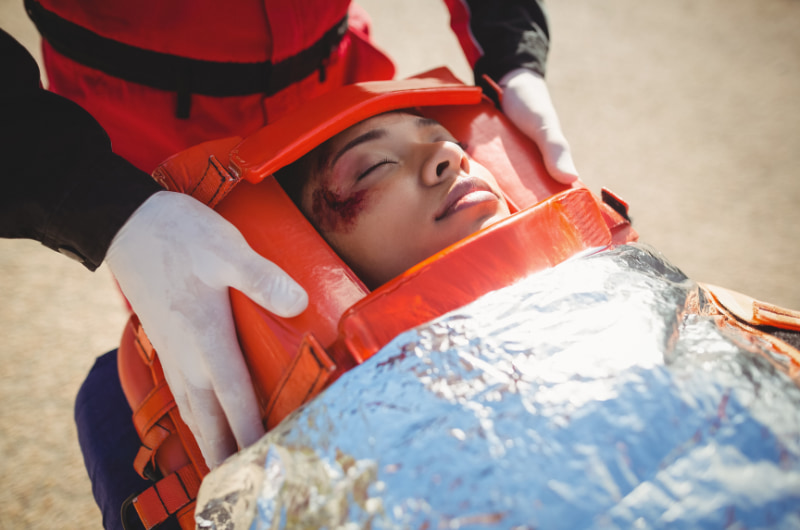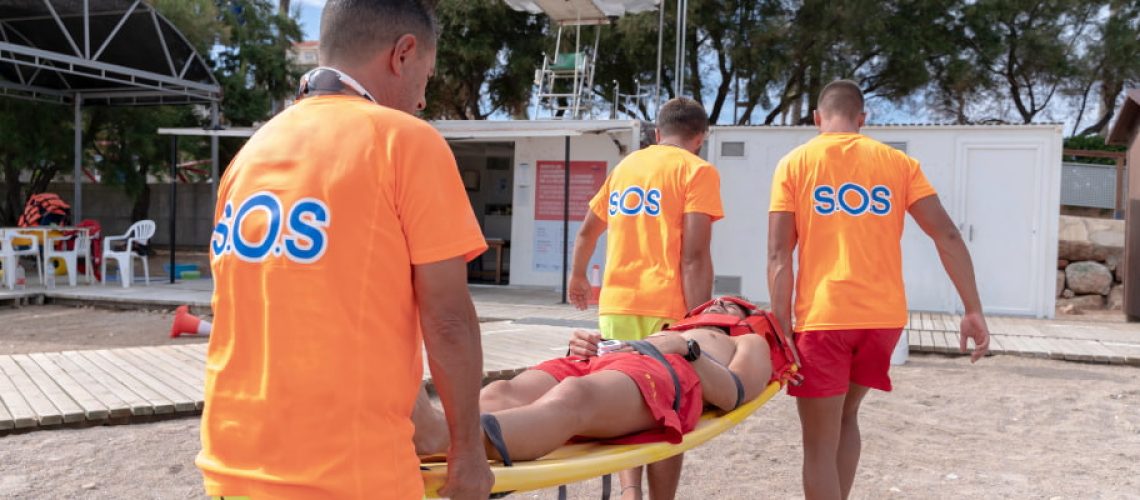Date Published: July 9, 2025
You’ve done the training. You passed the exam, earned your Lifeguard certificate or First Aid certificate, and carry the weight of a profound responsibility: in a moment of crisis, you are the first line of defence. Whether you’re watching over the shimmering water of a pool, the unpredictable surf of a beach, or the everyday environment of an office, you are the designated helper.
But ask yourself an honest question: if an emergency happened right now, would you be able to respond with the same speed, precision, and confidence you had the day you completed your course?
For many, the answer is a hesitant “maybe.” This hesitation is not a sign of failure; it’s a fundamental aspect of human psychology. This is why regular recertification isn’t just a bureaucratic checkbox; it’s an essential process rooted in understanding the human factors of emergency response. At Blueguard ME, we see it as a non-negotiable commitment to readiness.
Combatting Skill Fade: Why Lifesaving Skills Must Be Relearned In The UAE
The most compelling reason for regular recertification is a phenomenon known as skill fade. Think of first aid and lifeguarding skills like learning a language or a musical instrument. Without constant practice, your fluency diminishes. The precise depth and rate for CPR compressions, the correct way to apply a tourniquet, or the specific sequence of a spinal injury assessment are not skills you use daily. They are perishable.
Here’s where human factor interaction becomes critical. In a real emergency, you’re not operating in a calm, controlled classroom. You’re dealing with:
- High Stress: The body’s fight-or-flight response kicks in, flooding your system with adrenaline. This can narrow your focus, cause tunnel vision, and create significant memory gaps.
- Cognitive Load: You are simultaneously assessing the scene for danger, diagnosing the victim’s condition, recalling your training, and managing bystanders. This mental juggling act is overwhelming.
Regular training combats this by building automaticity. When a skill is practiced repeatedly, it moves from conscious thought to muscle memory. You don’t have to think about the hand placement for CPR; your hands just know where to go. You don’t have to struggle to recall the steps of a primary survey; the process becomes second nature. Recertification drills these skills back into your short-term and long-term memory, making them accessible even when your brain is under immense pressure.

Removing Hesitation from Emergency Response
Knowledge is one thing; the confidence to apply it is another. Months or years after your initial certification, self-doubt can creep in:
“Am I doing this right?”
“Has something changed?”
“What if I make it worse?”
This hesitation can be the difference between a swift, effective intervention and a delayed, uncertain one. In situations where every second counts, like cardiac arrest, severe bleeding, or drowning, hesitation is the enemy.
Recertification does more than refresh your memory, it rebuilds your confidence. It provides reassurance from a qualified instructor that your skills are not only up-to-date but also being applied correctly. During a refresher course, you:
- Engage in hands-on practice, reinforcing muscle memory in real-time scenarios.
- Ask targeted questions, clarifying techniques you may be unsure about.
- Identify and fix bad habits, which may have crept in unnoticed over time.
By the end of the session, you don’t just walk away with a renewed certificate—you leave with a stronger sense of readiness. This renewed self-assurance is one of the most valuable tools any first responder can carry.
Staying Updated: First Aid Guidelines Change Constantly
The world of emergency medical care is not static. Medical science, research, and field data lead to continuous improvements in techniques and protocols. The guidelines from international bodies like the International Liaison Committee on Resuscitation (ILCOR) are updated periodically.
What was considered best practice two years ago may be outdated today. For example:
- Changes in CPR compression-to-ventilation ratios.
- Updated guidance on the management of anaphylaxis.
- New protocols for water-based spinal injury management.
Using an outdated technique is not just ineffective; it could be harmful. Recertification ensures you are aligned with the very latest science-backed protocols, guaranteeing that the care you provide is the best and most effective it can be.
Legal Requirements: Why Staying First Aid and Lifeguard Certified Protects You and Your Employer
Finally, there is the crucial aspect of compliance. For professional lifeguards and workplace first aiders, a valid, in-date certification is a legal and contractual requirement. Employers, insurance providers, and local regulatory authorities mandate it to ensure a standard of safety and care. Lapsed certification can create liability issues for both you and your employer.
But beyond the requirement, view your recertification as a personal and professional commitment. It’s a promise you make to your community, your colleagues, and to any person who may one day need your help. It’s a declaration that you are not just qualified, but you are ready, willing, and truly able.
Book Your Lifeguard & First Aid Recertification in The UAE Today
Don’t wait until you’re faced with a crisis to question your skills. Hesitation can cost precious seconds, and out-of-date knowledge can compromise care. Your community relies on you to be at your best when it matters most.
Check the date on your certificate today. If it’s time for a refresh, take the proactive step to renew your skills, your confidence, and your commitment to safety.
Ready to sharpen your skills? Contact Blueguard ME to book your First Aid or Lifeguard recertification course. Our expert instructors will ensure you are confident, competent, and fully prepared for the moment you’re needed most.
📧 Email: info@blueguardme.com
📞 Call: 0569980531
Get in touch with Blueguard ME today to start building a safer aquatic environment.


